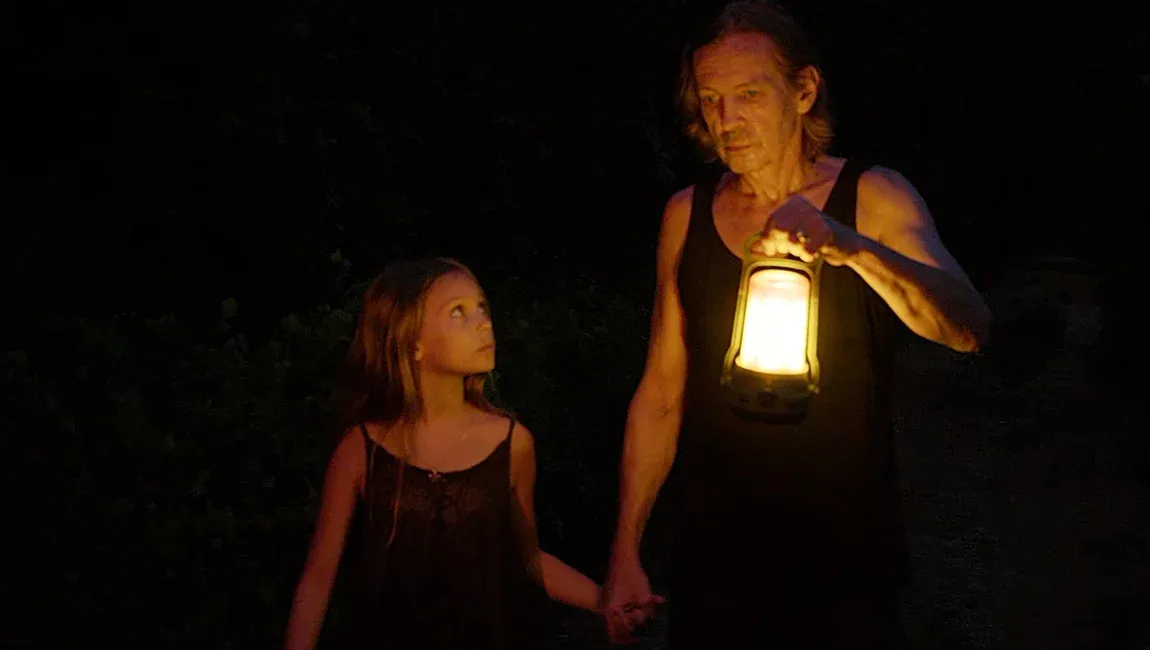Laguna
Grief can be foreboding like a lagoon; it can simultaneously and contrapuntally be a site for a baptismal-like transformation. Laguna understands this.

The most prolific filmmaker in the Baltics has returned. Šarūnas Bartas, the director behind The House and Peace to Us in Our Dreams, has been on a break since 2019. Bartas has stayed busy since 1990, even if he is known to occasionally go on streaks of four or five years without adding to his world-class filmography. This break is more understandable than most, though. In 2021, his daughter, Ina Marija Bartaitė, was tragically killed by a drunk driver while riding her bicycle. She was only in her 20s. Ina Marija followed in the footsteps of both Bartas and her mother, Russian actress Yekaterina Golubeva, and was a filmmaker herself. Bartas has two new films this year, Back to the Family and Laguna, and they both carry his reflective sensibilities forward as they philosophically meditate around family trauma and grief. Laguna documents the director and his younger daughter on a deeply personal excavation of grief and a celebration of life in the face of Ina Marija’s loss while retracing the steps of the departed in Mexico.
Ina Marija moved to Mexico’s Ventanilla Lagoon to act in a film and found solace in the Pacific Mexican coastline. Her home away from her Lithuanian home was special to her, and this memory recovery journey is the reason for Šarūnas’ (sometimes transliterated as Sharunas) latest. Some of the most tender scenes anywhere in film this year are Šarūnas and his younger daughter, Una Marija, remembering Ina Marija around small campfires in a remote Mexican forest. These discussions are simple but almost philosophical, covering topics such as life after death, grief and life celebrations, and moving on. Laguna is a heartbreaking film — for viewers going in ignorant of the context, it will be doubly so once they realize it’s a documentary — but it’s also life-giving. To hear the crying father-director explain to his younger and grieving daughter that “it would’ve been worse if we never had her” is an emotion so unadulterated and touching it would be impossible to script. Even a world-class director can’t manufacture the kind of core memories that these may end up being for Una Marija.
Continue reading at In Review Online.